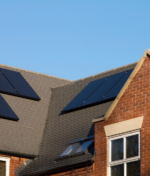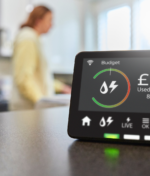
Climate Change: Explained
2025 has been a year of broken weather records – the sunniest and driest spring in a century, the warmest June ever recorded in England and the hottest summer on record from June to August, surpassing even the legendary heat of 1976.
While these warm spells may seem pleasant, record breaking weather is becoming far more frequent worldwide. Climate change is driving more extreme events such as flooding, wildfires and tropical storms. Even typically cooler and wetter regions like Scotland saw devastating wildfires this summer.
Scientists are linking these patterns to climate change – but what exactly does that mean?
What Is Climate Change?
Climate change refers to long term shifts in global temperatures and weather patterns. These changes are driven by rising greenhouse gas emissions, particularly carbon dioxide, which trap heat in the Earth’s atmosphere.
Seasonal changes would still occur naturally, but climate change alters these patterns over time, causing more dramatic and unpredictable weather.
Climate Change vs Climate Emergency
The climate emergency refers to the urgent global action required to slow or stop the human driven impacts of climate change since the Industrial Revolution. Rapid climate change is causing potentially irreversible environmental harm.
Its effects are especially severe in low income regions like southern Africa, where prolonged droughts lead to crop failures, long term land damage and economic hardship. Ironically, the countries contributing the least to greenhouse gas emissions often suffer the most from climate change.
What Causes Climate Change?
Human activity is the main driver. Burning fossil fuels releases CO₂ and methane, trapping heat and raising global temperatures. Everyday activities, like heating homes, driving or flying, add to our carbon footprints. Deforestation and habitat destruction, often linked to agriculture and food production, further accelerate the problem.
What Are the Effects of Climate Change?
Rising temperatures are disrupting weather systems, leading to more frequent and intense events such as droughts, heatwaves, floods and hurricanes. These changes result in:
- Crop failures
- Habitat loss
- Reduced biodiversity
- Wider spread of disease
- Water shortages
This threatens global food and water security, increases health risks, displaces populations and worsens inequality.
How Can We Reduce Climate Change?
Countries worldwide have committed to Net Zero targets, with the UK aiming for 2050. Net Zero means balancing the amount of carbon emitted with the amount of carbon removed from the atmosphere.
Achieving this requires a shift toward renewable energy, lower carbon footprints and sustainable living.
At Solar Suffolk, we provide emission free solar panel systems that cut your carbon footprint, lower electricity bills and help you gain energy independence.
Ready to Future Proof Your Home?
Contact Solar Suffolk for a free, no obligation solar design and quote tailored to your home, energy usage and future needs. No hard sell, just honest, expert advice from a team experienced in helping homeowners across Suffolk reduce their carbon footprint and embrace clean energy.
Solar on your roof. Power in your hands.



